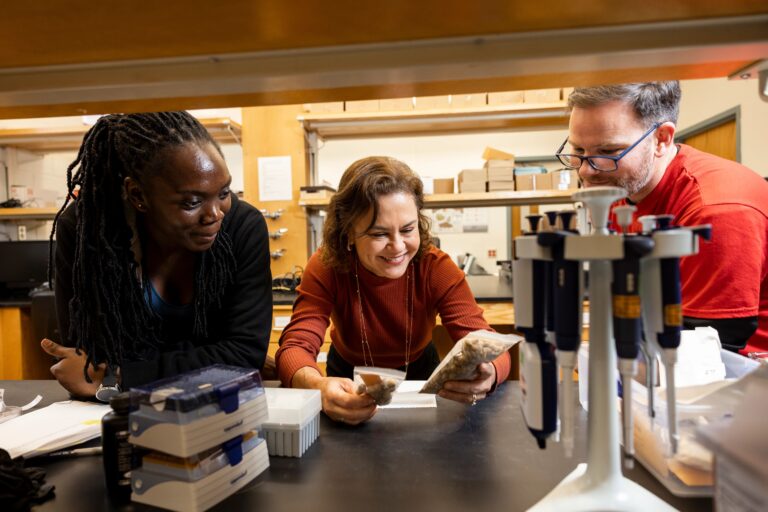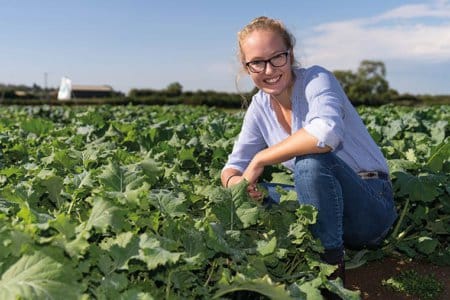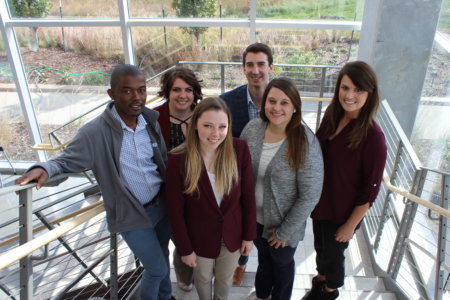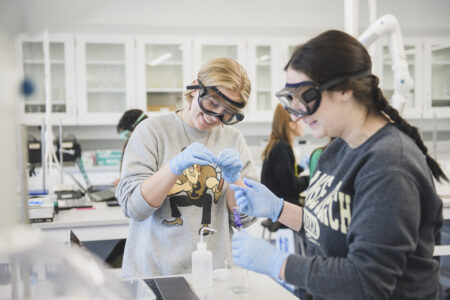
The world faces many pressing issues: ballooning populations, a changing climate, and a growing strain on resources. Our future depends on innovative solutions, and graduate programmes in agriculture and environmental sciences are crucial to the cultivation of a sustainable tomorrow.
Consider the cotton we wear. Traditional cotton farming is water-intensive, yet scientists are developing drought-resistant varieties. Or think about the food on our plates. Graduate researchers are pioneering techniques for vertical farming and regenerative agriculture to boost yields while minimising environmental impact. Even the water we drink is not immune to challenges. Experts with advanced degrees are developing filtration systems and sustainable water management practices for a thirsty world.
These are just a few examples. Graduate programmes in agriculture and environmental sciences equip students with the specialised knowledge and research skills needed to tackle even more complex issues. By studying these fields, you can join the next generation of scientists, policymakers, and innovators who can shape a more sustainable future for all.
If this aligns with your vision for the future, here are three universities renowned for nurturing global leaders in this field:

University of Georgia’s College of Agricultural and Environmental Sciences recently inaugurated a new Poultry Science Building to better equip its faculty, students and the poultry industry, positioning them for future success. Source: University of Georgia
University of Georgia
The University of Georgia‘s College of Agricultural and Environmental Sciences (CAES) is boldly tackling the growing challenges facing our planet — population surges, climate change and resource scarcity. By merging traditional agricultural practices with cutting-edge technologies, CAES scientists and researchers are paving the way for a more sustainable future.
Nestled in Athens, a top-ranked college town, CAES offers a comprehensive curriculum for its graduate students. On three campuses across the state, students gain first-hand experience from leading researchers who are constantly innovating and developing new methods to address critical agricultural and environmental issues.
The Department of Poultry Science is a prime example of the college’s commitment to excellence in research and education. It offers three graduate programmes that provide students with a strong foundation in poultry science, encompassing physiology, genetics, nutrition, product technology and more. A new Poultry Science Building opened its doors in October 2023 to provide state-of-the-art facilities for continued ground-breaking work.
The Food Science and Technology programme bridges the gap between farm and table, applying scientific principles across the food chain. Students grapple with real-world issues in food safety, quality, processing and distribution. The department’s Center for Food Safety, a global leader in foodborne pathogen research, has had a significant global impact with its pioneering work on antibiotic-resistance genes. For those passionate about hospitality, CAES offers a major in Hospitality and Food Industry Management, ideal for those seeking a career in hotels, restaurants and hospitality settings.
Meanwhile, at UGA’s Regenerative Bioscience Center, experts in veterinary medicine, science and engineering are working on regenerative medicine using nanotechnology to repair and regenerate damaged tissues. Their development of “brain glue” and a promising stroke treatment nearing clinical trials are examples of how UGA teaching and research hold immense potential to save lives. In 2023, UGA launched a PhD in Regenerative Bioscience, making it the first programme of its kind in the state that nurtures interdisciplinary research and entrepreneurial skills within this dynamic and growing field. Apply to UGA CAES today.

The School of Agriculture and Food Sustainability at University of Queensland provides a premier learning hub to tackle global food security and sustainability issues, preparing a skilled workforce for the task. Source: University of Queensland/Facebook
University of Queensland
The University of Queensland ranks fourth globally and first in Australia for agriculture in the 2023 NTU Performance Ranking of Scientific Papers. Its School of Agriculture and Food Sustainability is renowned for its interdisciplinary work in agriculture, agribusiness, food science and technology, plant and soil sciences, and animal and wildlife science — ranking 23rd worldwide and first in Australia for food science and technology in ShanghaiRanking’s 2023 Global Ranking of Academic Subjects.
The school focuses on three main impact areas. For dairy science and engineering, the school partners with Dairy Innovation Australia Limited on a five-year ARC Industrial Transformation Research Hub, providing solutions to the dairy manufacturing industry. For food science researcher training, students and postdoctoral fellows participate in industry-relevant research projects at the ARC Industrial Transformation Training Centre. This collaboration involves working with the Australian Food and Grocery Council and food companies, covering science, engineering, sensory, consumer perception studies, and agribusiness.
The third area of impact is food quality. Projects include identifying and quantifying traits that define superior fragrant rice, applying nanotechnology to minimise changes in milk protein powders during storage, and using genomics to enhance the cheese-making process.
Students pursuing food science and technology at the school benefit from access to its world-leading specialist research centres and facilities, including the QAAFI Centre for Nutrition and Food Sciences and the UQ Food Science Innovation Precinct. They can choose from programmes in Agribusiness, Agricultural Science, Animal Science and Veterinary Technology, Food Technology, Food Science and Nutrition, and Plant and Soil Science.

The Faculty of Biosciences conducts research on plants, livestock, and fish. Source: Norwegian University of Life Sciences
Norwegian University of Life Sciences
Nestled amidst picturesque Norwegian scenery, just 30 kilometres outside Oslo, the Norwegian University of Life Sciences (NMBU) is a pioneer in the field of life sciences, consistently ranking among the world’s best for Agriculture & Forestry. Their focus? Paving the way for a more sustainable future.
The Faculty of Biosciences leads the charge in sustainable food production. Through research on plants, livestock, and fish, they take on the critical challenge of ensuring access to safe, nutritious food while minimising environmental impact. Their seven international master’s programmes address various aspects of this multifaceted issue. Students can explore programmes like the European Master in Animal Breeding and Genetics, Animal Science, Genome Science, Agroecology, Aquaculture, Plant Sciences, Sustainable Food Systems, and Urban Agriculture.
NMBU also equips students with the knowledge to address the interconnected challenges of sustainable development, exposing them to innovative solutions like robotics and AI in agriculture and the potential of new genome technologies for improved breeding practices.
Their research-intensive environment fosters close collaboration between students and faculty, ensuring access to cutting-edge knowledge. Students gain practical experience through on-campus research facilities, interacting with live animals and plant fields, further enriching their educational journey. Collaborations with research centres and participation in large-scale projects like the NMBU Sustainability Arena: GreenSmart and Sustainable Food Systems solidify the university’s commitment to making a real-world difference.
*Some of the institutions featured in this article are commercial partners of Study International










